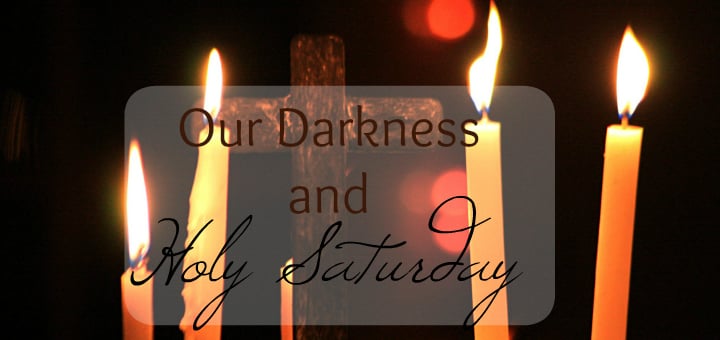 Photo via
Flickr (2009), CC BY 2.0. Title added by author.
Photo via
Flickr (2009), CC BY 2.0. Title added by author.
In almost two weeks we will be entering into our most holy days of days: the Triduum, consisting of the evening of Holy Thursday, Good Friday, Holy Saturday, and into the Easter Vigil. Each day has a very specific focus: Holy Thursday is on the Last Supper, encompassing Jesus washing his disciples’ feet and the last meal we all celebrate together before the Vigil. Good Friday we remember Christ’s unjust trial, condemnation, and his death upon the cross. And from here, there is a leap to the Easter Vigil, that amazing celebration where we remember all of God’s work in building his relationship with us through the ages and celebrate again, with renewed vigour, the meal commemorating Jesus’ great and eternal sacrifice and gift to us all: the Eucharist.
But.
There is another day.
Holy Saturday.
Did we miss it?
Does it even mean anything?
[tweet "Why is the darkness of #HolySaturday important to our spiritual lives? By @janekorvemaker"]
Personal Darkness
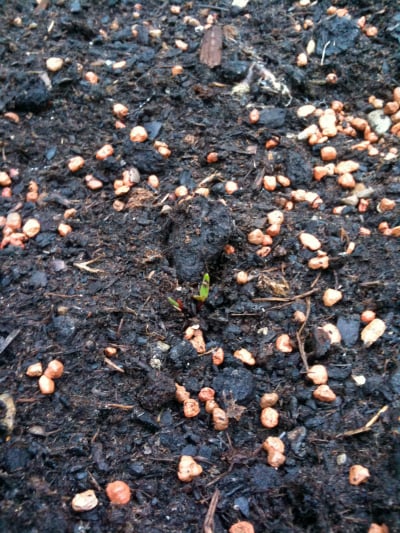 Via
Flickr (2010), CC BY 2.0
Via
Flickr (2010), CC BY 2.0
Years ago I was in a relationship that was turning abusive. It inadvertently ended when he moved (we had no official dating status) and I felt very confused, deeply hurt, and I foresaw that I might have issues with male friends afterwards. I felt a deep need to aggressively be defensive of my person after what I had just gone through.
I met a guy while studying, and when it looked like we might end up being good friends, I recall with great clarity telling him, while I was making myself hot chocolate no less, that I would leave no room for hidden feelings. That I was entering into this friendship with the expectation of being friends, and if anything were to ever change, on his side or mine, that it must be declared so that proper mental and emotional judgement could be used. He was, to say the least, surprised by the aggressiveness of this demand, most notably due, perhaps, to the fact that he was a seminarian. But he wholeheartedly agreed.
It was a year and a half later when I started to realise I was changing, and this brought great turmoil within me. As I reflected on this great friendship with Andy I realised that my feelings were changing and that I was starting to long for more. Once I owned up to my feelings, I realised I needed to act, and it took a month to build up the courage to talk with him about my changed feelings. I knew very well that he was unlikely to return my feelings. It’s one thing to go into a conversation not knowing what the end result will be, it’s another entirely going into a conversation knowing the negative outcome. I was scared, I felt doubts, and an urgent sense of procrastination. I prayed daily, hourly even, about this issue. I felt certain that God was leading me to be honest and truthful, but a week before the certain meeting, God’s presence seemed to completely disappear.
Previously where I had felt comfort, felt wisdom, felt assurance of the path I should take in prayer, suddenly all was desolate. My prayer reaped no comfort, no wisdom, no assurance. It was as if the pool of God’s presence became swiftly parched. Suddenly my doubts washed over me like a tidal wave - if I have no sense of God’s assurance, was I on the wrong path? Was I somehow amiss in my discernment? I cried out to God pleading for light to be shone on the situation - what was I to do?
The only thing I felt I could cling to was the confidence that God had lead me to this point, that up until then I had been sure that confronting my conflict was the right choice. The only thing that gave me sanity was believing, in fullness, that God would not abandon me, despite this sense of withdrawn presence. I did not know, I could only trust.
I talked with Andy. His response was just as devastating as I expected it might be, and so we parted ways. I knew I could not continue in the friendship without regret and resentment building in me, which was completely unfair to him. It was better to leave. And so we broke ties and I knew no more.
Understandably I had a great period of mourning and sorrow, but shortly after I felt a return of God’s presence. And I understood then that God was all I needed to get through. I also understood that if that door was a definite ‘No,’ then there was something better in my future that I could not yet imagine.
Unbeknownst to me, Andy was doing his own discernment about his vocation. He had an encounter about six months after our discussion that illustrated to him that he was not where God was calling him to be. He took two more months of discernment to verify in the community that what he was sensing was of God, and when the time was right, he left the seminary.
Eight months after our talk, I received an email where he announced to his family that he was leaving the seminary. I was surprised. I felt a spark. He emailed me again later and asked if I would be willing to talk with him. I agreed.
The rest, as we say, is history.
Jesus' Darkness
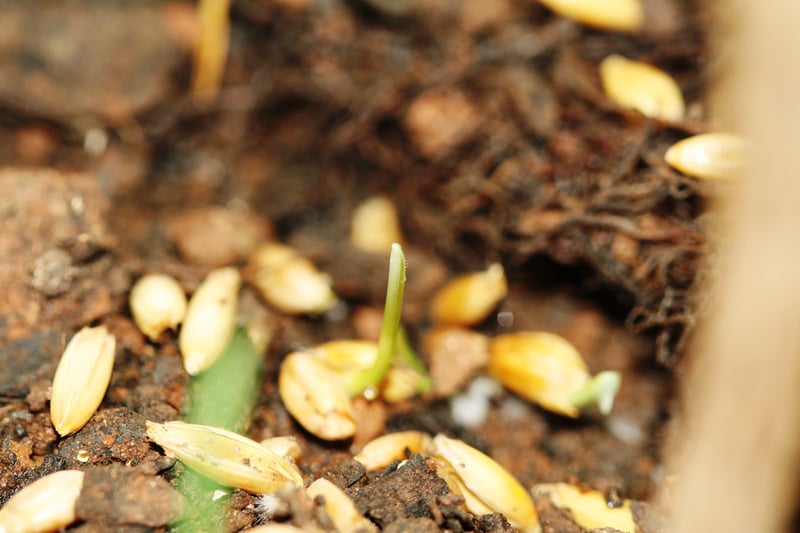 Via
Flickr (2011), CC BY-NC-ND 2.0
Via
Flickr (2011), CC BY-NC-ND 2.0
The reason that Holy Saturday is so significant a day for us is because we recognise that Jesus died. In his life he followed his Father’s will. Then there was the agony in the garden. Jesus felt abandoned by God, but as he hung dying on the cross, dying in loving obedience to doing God’s will, he still had faith that God would not leave him. Jesus died in that trust.
Once dead, he was in complete solidarity with everyone else who was dead. What do we know of being dead before the redemption?
To existence in death there belong darkness…, dust…, silence…. From Sheol one does not return…. No activity goes on there…, there is no joy…, no knowledge of what happens on earth…. There is no more praise of God…. Deprived of all strength and all vitality…, the dead are called refa’im, the powerless ones. They are as if they were not…. They dwell in the country of forgetfulness…. ‘And to there even the Christ descended after his dying.’
(Mysterium Paschale, Hans Urs von Balthasar p. 161-2)
I don’t know about you, but to me, this sounds similar to my experience: darkness, silence, no joy, no praise of God…when we experience traumatic events in our lives, it is comparable to being like the dead.
Just like everyone else who died, Jesus was completely helpless. Yet unlike everyone else, through his closeness to his Father in life (more close than any other human had ever come), and through the weight of all the sin of the world pressed upon him, his death pushed him the farthest away from the Father’s love, farther than anyone else had ever gone or could ever go in death. This is why Balthasar states that Hell is a product of redemption - Christ defined the boundaries with his death, boundaries that were not there before. He went, and has gone, farthest away from the Father’s love.
But in that case it is he who sets the limits to the extension for damnation, who forms the boundary stone marking the place where the lowest pitch is reached and the reverse movement set into operation.
(--p 170)
And so Jesus, eternal begotten son of God, encompassed the furthest reaches of the underworld. There literally is no place further than where Christ has gone. And even in the furthest reaches, God the Father, in all faithfulness, did exactly what was needed in order for salvation to be given to the human race: he raised the rejected one out from the darkest realm of death. Christ has died. Christ is risen. Christ will come again.
Holy Saturday took on a new meaning for me when I felt the great and dry desert from whence no communication came from God. I felt that abandonment pierce me like a thorn, drawing my blood out; I felt like Jesus in the garden. Agony. And death. I believed I was doing what I was called to do, but in the end, all I had left was trust that it was the right thing. I went ahead and died according to the will of the Father. All I could do was believe that God would be faithful.
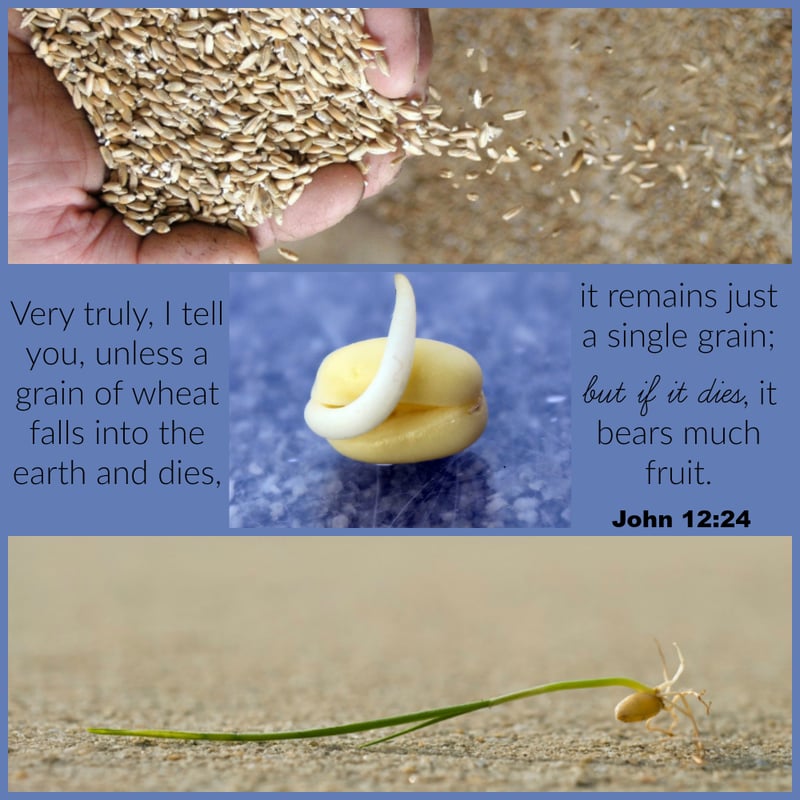 Collage created by author.
Image 1 (2005) CC BY 2.0;
Image 2 (2012), CC BY SA 2.0;
Image 3 (2007), CC BY 2.0
Collage created by author.
Image 1 (2005) CC BY 2.0;
Image 2 (2012), CC BY SA 2.0;
Image 3 (2007), CC BY 2.0
The Father's Faithfulness
How many of us experience similar desolations? Abandonments? That feeling of absolute helplessness in the face of trauma? And when it comes to it, we doubt. I doubted. Jesus struggled with his will and his Father’s will in Gethsemane. Yet what matters in the end is the trust. Knowing that in the struggle, we may very well die, but to trust that the Father is faithful to his word; faithful to his Word. We cannot be farther from God than Jesus was on Holy Saturday. We can cling to our faith because it has been proved in Jesus. No matter how forsaken and abandoned we feel, there will be resurrection. We cannot predict the duration of our own Holy Saturday, of being one of the powerless ones (refa’im), but our resurrection is coming.
Holy Saturday is a day we can truly be united to Jesus. He, like us, was in the silence, the darkness. This is a day for all our own dark times. Christ is in solidarity with our dark times. He urges us to remain faithful and to trust his Father. Because, as we know, the Vigil is almost upon us. We are almost there - the Father’s faithfulness will raise us up, just like Jesus. Easter is coming: do not be afraid.
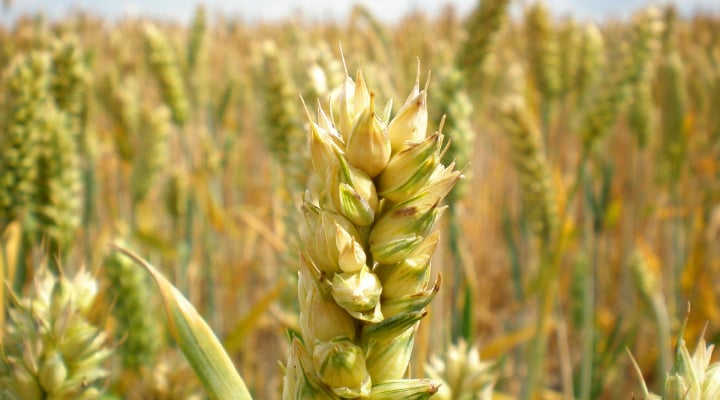 Via
Flickr (2011), CC BY 2.0
Via
Flickr (2011), CC BY 2.0
Copyright 2017 Jane Korvemaker
About the Author
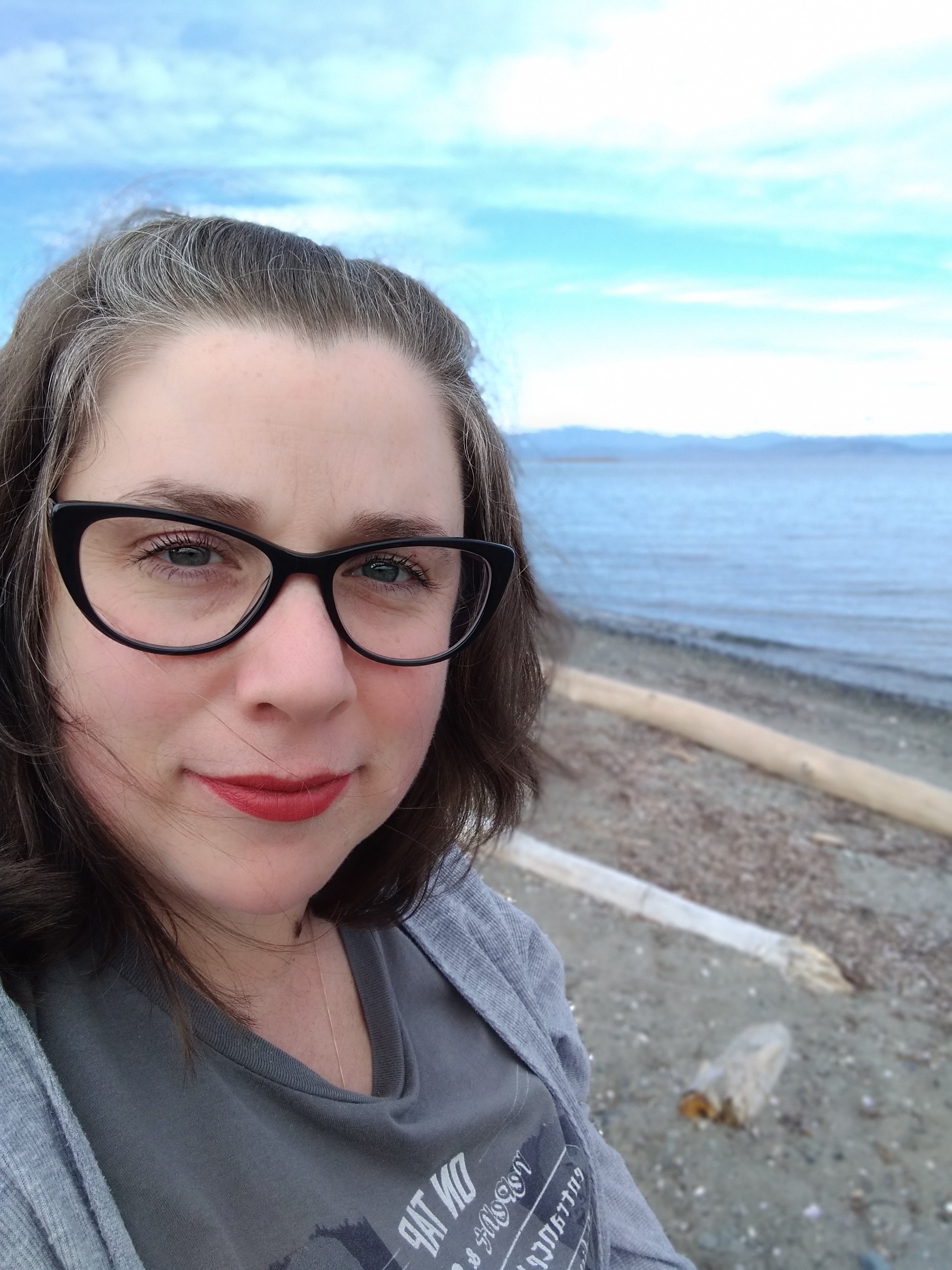
Jane Korvemaker
Jane Korvemaker loves food, family, wine, and God (perhaps not in that order). She holds a Certificate in Culinary Arts, which pairs perfectly with her Bachelor in Theology. A former Coordinator of Youth Ministry, she writes from the beautiful and cold province of Saskatchewan, Canada. She works from home and takes care of her three very hard-working children. Jane regularly blogs at AJK2.ca.


.png?width=1806&height=731&name=CatholicMom_hcfm_logo1_pos_871c_2728c%20(002).png)
Comments